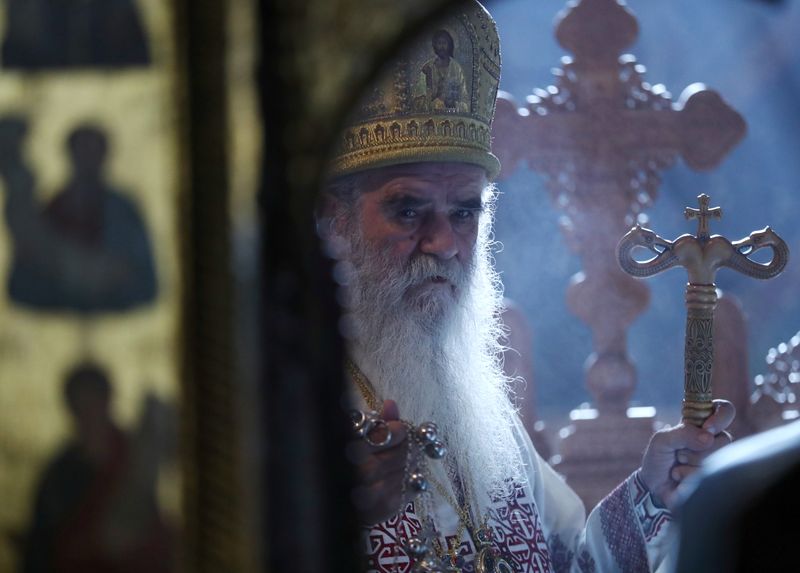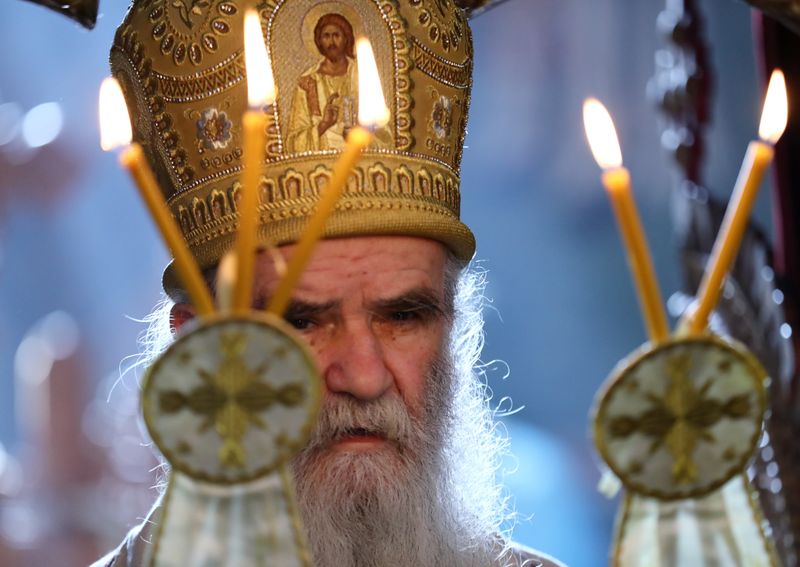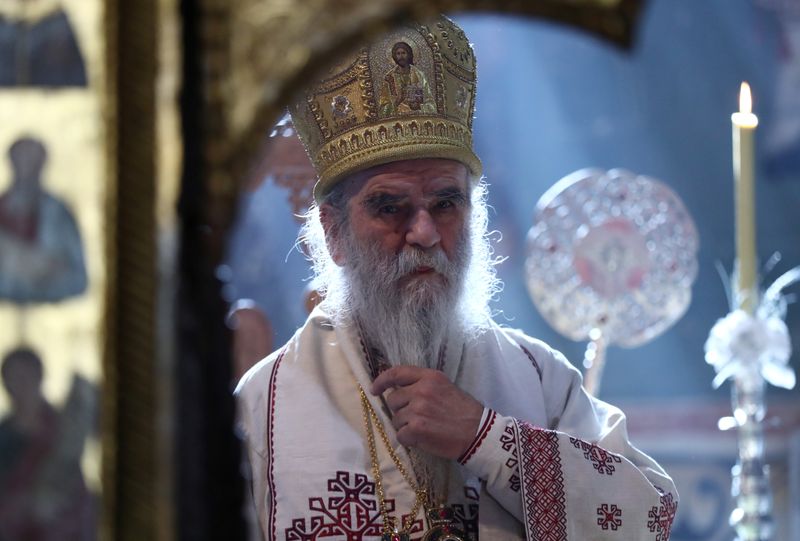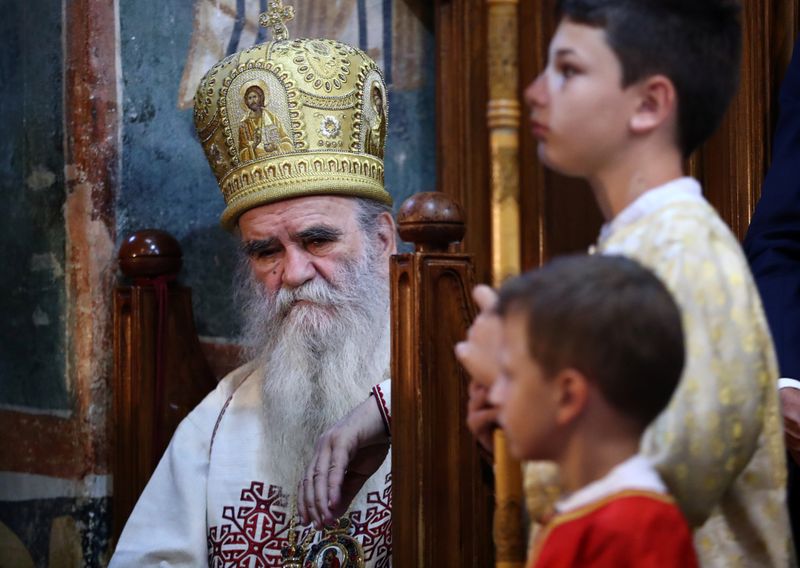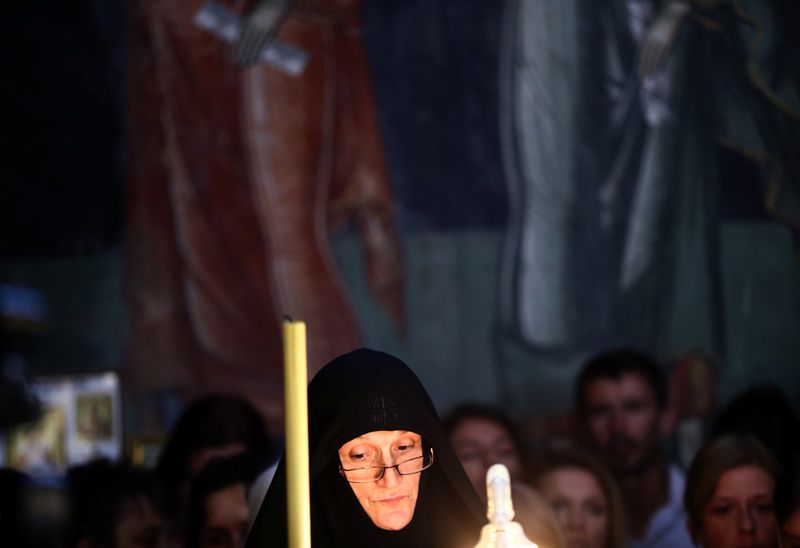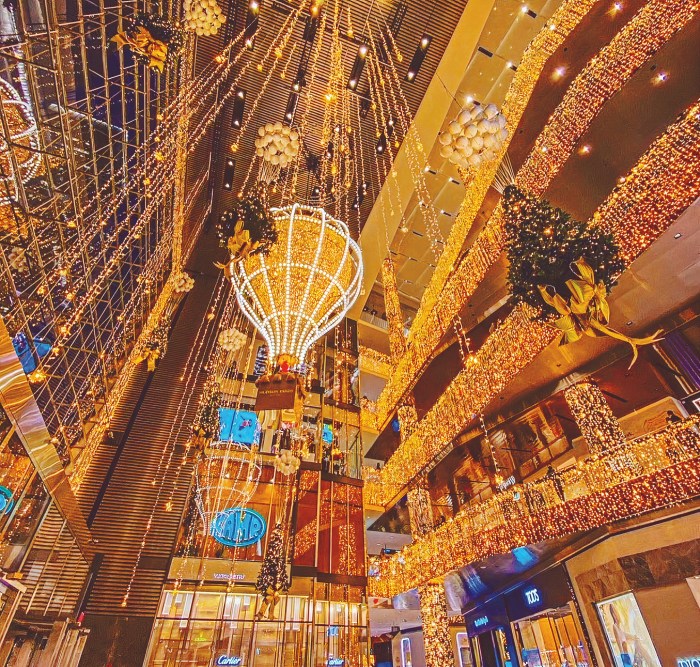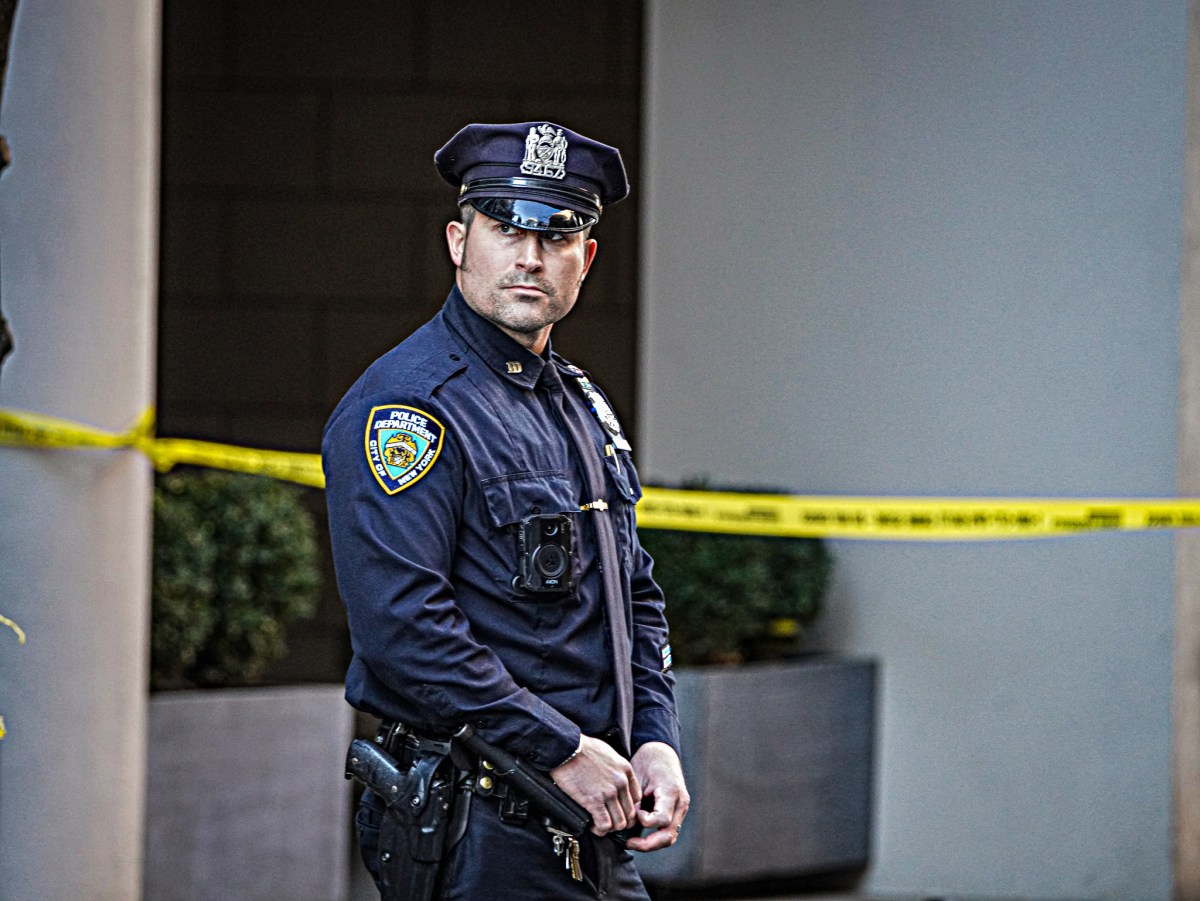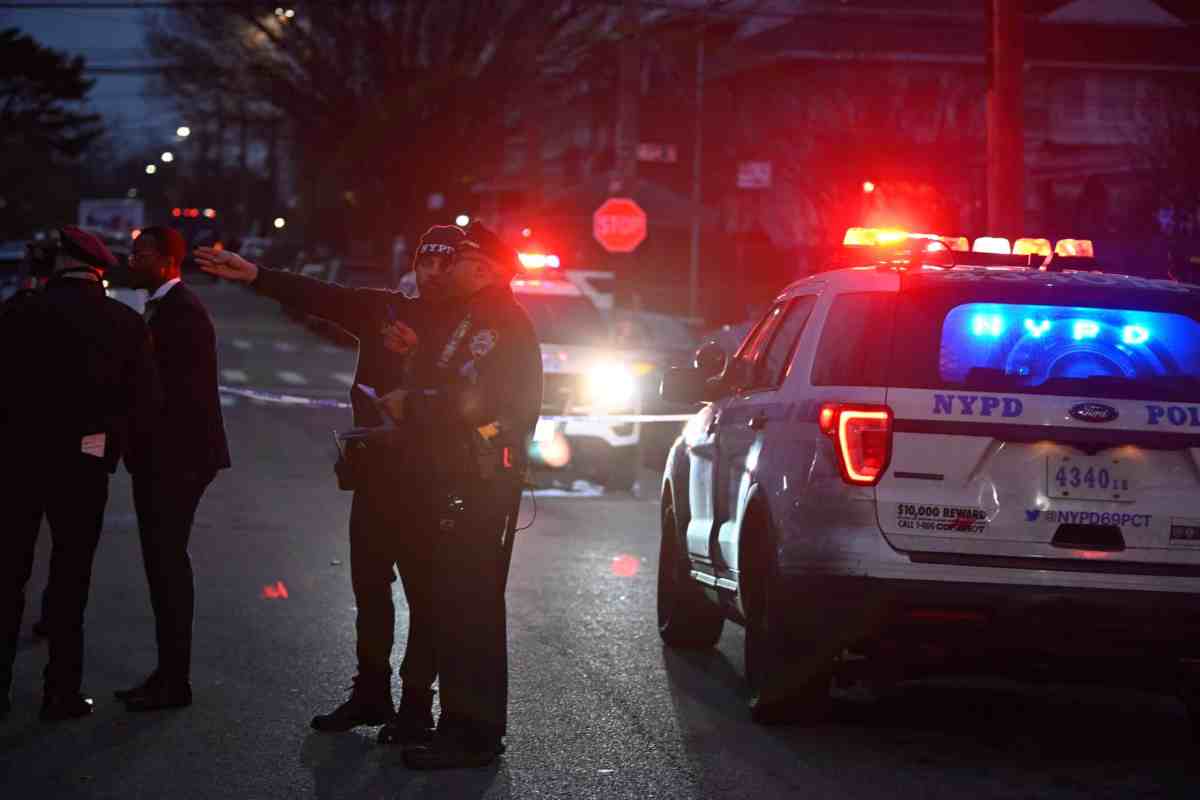PODGORICA (Reuters) – The tiny Adriatic republic of Montenegro goes to the polls on Sunday riven by tensions over a religious communities law resisted by the powerful Orthodox Church and grappling with the coronavirus pandemic.
At stake in the parliamentary election is the long rule of President Milo Djukanovic’s Democratic Party of Socialists, who led Montenegro through the 1990s break-up of federal Yugoslavia and the 2006 dissolution of its state union with Serbia.
The DPS was also instrumental in Montenegro’s accession to NATO in 2017 and has overseen its ongoing efforts to qualify for membership of the European Union.
The vote pits the DPS against the opposition, mainly Serb nationalist For the Future of Montenegro alliance, which seeks closer relations with Serbia and Russia and has the backing of the Serbian Orthodox Church.
Montenegrins who identify as Serbs account for about a third of the 620,000 population. Most Montenegrins and Serbs share language and the Orthodox faith, and many Serbian citizens have roots and families in Montenegro.
An Aug. 13 poll by the Centre for Democracy and Human Rights (CEDEM) put the DPS at an estimated 32-38% of the vote, with For the Future of Montenegro at 22-27%. The DPS now has a bare majority of 42 deputies in the 81-seat parliament.
If it wins on Sunday, the DPS may have to seek more partners for a viable majority, said CEDEM director Milena Besic. “There will have to be concessions to potential partners,” she said.
CHURCH-DRIVEN UNREST
Opposition leaders and democracy and rights watchdogs have long accused Djukanovic, who faces re-election in 2023, and the DPS of running Montenegro as their own corrupt fiefdom and of ties with organised crime. They deny this.
But the biggest, fresher hot-button issue in the campaign has been a law adopted late last year that allows the state to seize some religious assets if historical ownership cannot be proven.
The law has yet to be enforced largely due to months of protests led by the Serbian Orthodox Church, Montenegro’s largest and backed by pro-Serbian parties.
Last week Metropolitan Amfilohije, the church’s top cleric in Montenegro, called on people to vote against the ruling coalition. “The church…rejoices in those who are against this lawless (religion) law,” he said in a sermon.
At a campaign rally on Wednesday, Prime Minister Dusko Markovic said he was confident in a DPS victory and that the Orthodox Church was Montenegro’s main adversary.
“After elections, the…church and its priests will return to churches… They will no longer be at political rallies … where they curse our forefathers, us and our children.”
Djukanovic has repeatedly accused Serbia and Russia of using the church to undermine the independence of the mountainous, Adriatic coast republic.
The dispute will influence the election outcome, said Besic. “Many people see this as a foremost political issue.”
Montenegro has also been dealing with a coronavirus outbreak that has sickened over 4,500 people, with 89 deaths, so far. The pandemic has gutted revenues from Adriatic tourism seen as crucial to Montenegro’s budget.
(Writing by Aleksandar Vasovic; Editing by Mark Heinrich)

